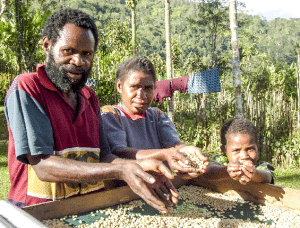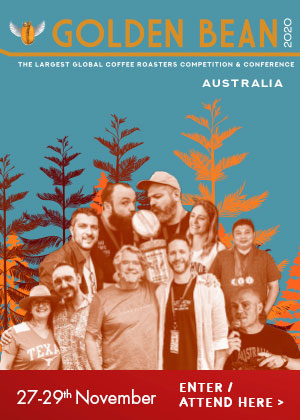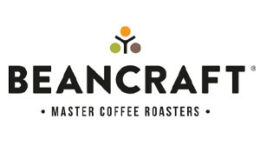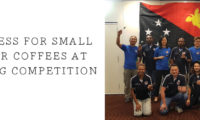With the growth in specialty coffee and interest in origins, there have been an increasing number of roasters trading directly with growers. This approach to sourcing coffee is welcomed by Fairtrade Australia & New Zealand, as direct trade is a founding principle of Fairtrade.
Fairtrade is underpinned by the promotion of long-term trading relationships and partnership. Removing the unnecessary “middle men” from supply chains and trading relationships has been at the core of much of the work done by Fairtrade organisations on the ground in places such as Africa and Latin America.
However, some roasters have sought to promote their direct trade approach by distinguishing it from Fairtrade, in some cases spreading misinformation about the Fairtrade system. This article will look towards the similarities between direct trade and Fairtrade, while also discussing what we see as one of the key myths often put forward.
We are excited about the growing consumer interest in where coffee comes from. The willingness of roasters and cafés to tell the story of coffee growers around the world can only be a good thing. Awareness about the journey that coffee takes from bean to cup, including who is involved and how it is done, is an important step in improving the lives of growers and their communities.
Historically, many coffee growers in the developing world have not received the benefits of growing one of the world’s most popular commodities, and a lack of awareness at the consumer end has certainly been a factor. Both direct trade and Fairtrade play an important role in promoting awareness among consumers about where their coffee comes from.
Fairtrade Certification has helped to increase transparency in a time where consumers are increasingly sceptical about green washing. As an independent 3rd party certification system, Fairtrade provides assurance to consumers that the coffee has been sourced according to ethical and environmental standards agreed upon by growers, development agencies and the coffee industry itself. Research shows that 71% of Australians are looking for independent verification on the ethical claims made by businesses. While many direct trading roasters are indeed trading in the manner they claim, the lack of independent oversight means the concept is at risk of abuse, ruining it for those who are doing the right thing.
Another key similarity is that both promote longer term relationships with growing communities. Helping farmers in the developing world isn’t just about paying them a higher price for their produce. What communities need is stability in their trading relationships. Coffee trading, and global trade in general, needs to move beyond structures that encourage competition based purely on finding the lowest possible price. Longer term relationships move us beyond simple transactions to mutually beneficial partnerships.
Fairtrade and direct trade also share the idea that improved product quality is a vital ingredient for improving the situation for growers. There are direct links between product quality and socioeconomic sustainability. However, some proponents of direct trade have argued that Fairtrade encourages poor quality coffee, because it does not provide incentives to improve. This is inaccurate.
The global market for ethically certified coffees has grown significantly. In 2011 alone, nearly 100,000 metric tonnes of coffee were sold with the FAIRTRADE Mark. We are now seeing a market within a market, where traders and roasters around the world can choose between a number of origins and varieties where quality can be a deciding factor, thus providing an incentive. Furthermore, a key plank in the Fairtrade Standards is the Fairtrade Premium. The Fairtrade Premium is paid above and beyond the Fairtrade price. The Premium fund is typically invested in education and healthcare, farm improvements to increase yield and quality, or processing facilities to increase income.
A great example of this is the Ndumberi Coffee Farmers Co-operative Society Ltd in Kenya. They have used Fairtrade Premiums to invest in their own agronomist. From this, they have been able to:
• Improve overall productivity (in some cases from a low of 1 kg of coffee per tree to as much as 12 kg);
• Upgraded production of premium graded coffee from 45% to 75%.
Another important advantage that Fairtrade brings to growers is access to a global market. Fairtrade products are now available in more than 120 countries, meaning that growers are not at risk by depending on only one market or buyer for their coffee.
In our own region, we are investing heavily in supporting Pacific growers to take advantage of the Fairtrade system. During this year’s Fair Trade Fortnight (5 – 22 May), Australia had a visit from Michael Toliman, who represents the Neknassi coffee cooperative in Papua New Guinea. After being in the Fairtrade system for 12 months, the cooperative is already experiencing the benefits of better access to markets and the opportunity to invest in their local community. They are now looking forward to investing in producing better quality coffee, so they can find new buyers.
For more information
on Fairtrade, visit: www.fairtrade.com.au
By Daniel Mackey – Fairtrade Australia & New Zealand Business Development Manager
Photo credit: Fairtrade ANZ.



















